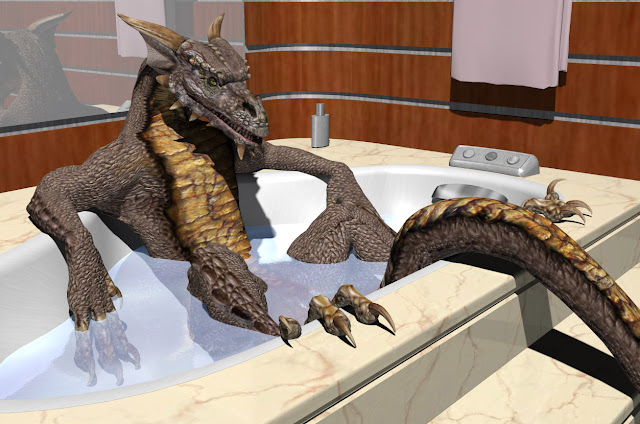Bearded Dragon Bathing: How Often Should You Do It?
Introduction
Bathing your bearded dragon is an essential part of its overall care in captivity. Proper hygiene helps keep your pet healthy, happy and free from any potential infections. If you’re new to bearded dragon care, you might be wondering how often you should bathe your pet. In this article, we will explore the factors that determine the frequency of bathing and guide you on how to do it properly.
Factors That Determine Bathing Frequency
The frequency of bathing largely depends on certain factors such as age, environment, and health status. Let’s take a closer look at each of these factors.
Age
As a rule of thumb, juveniles require more frequent bathing than adults. This is because they are more active and tend to get dirtier quickly. Juveniles should be bathed at least once or twice a week, while adults can be bathed once a week or even less frequently.
Environment
The type of substrate you use in your dragon’s habitat can influence the frequency of bathing. If you use loose substrates such as sand, be prepared to bathe your pet more often. These substrates can collect food particles and lead to gut impaction in your pet. In contrast, if you use paper towels or reptile carpet, the frequency of bathing can be reduced since these substrates are easier to clean.
Health Status
If your bearded dragon is recovering from an illness or injury, it may require more frequent baths to help with the healing process. Ask your veterinarian for the appropriate frequency of bathing and any special precautions you need to take.
How to Bathe a Bearded Dragon
Now that you understand the factors that determine the frequency of bathing, let’s dive into how to do it properly. Below is a step-by-step guide:
Step 1: Prepare the Bathing Area
Choose a shallow container such as a plastic tub or sink that’s large enough to accommodate your bearded dragon comfortably. Make sure the water is lukewarm, and the depth of the water should be no more than the height of the dragon’s shoulders.

Step 2: Add Water and Antimicrobial Soap
Add water to the container and mix in an antimicrobial soap designed specifically for reptiles. The soap will help kill any bacteria or parasites that may be on your dragon’s skin. Avoid using human soaps or any product that contains harsh chemicals.

Step 3: Place the Bearded Dragon in the Water
Gently place your bearded dragon in the water and let it soak for 10-15 minutes. You may need to hold it down initially to avoid any sudden movements that may cause it to fall or dart away from the water.

Step 4: Dry Your Dragon
Once the bath is over, remove your bearded dragon from the water and dry it thoroughly with a soft towel. Be gentle when handling your pet, and avoid vigorous rubbing since it can damage the delicate skin. You can also let your pet air dry in a warm and dry environment.

Conclusion
Bathing your bearded dragon is a necessary aspect of pet ownership, but it’s important to note that over-bathing can also be harmful. Follow the guidelines in this article to determine the appropriate frequency for your pet, and always use the right products and techniques to ensure it is cleaner and healthier. With regular care and attention, your bearded dragon will thrive and be a valuable companion for years to come.
